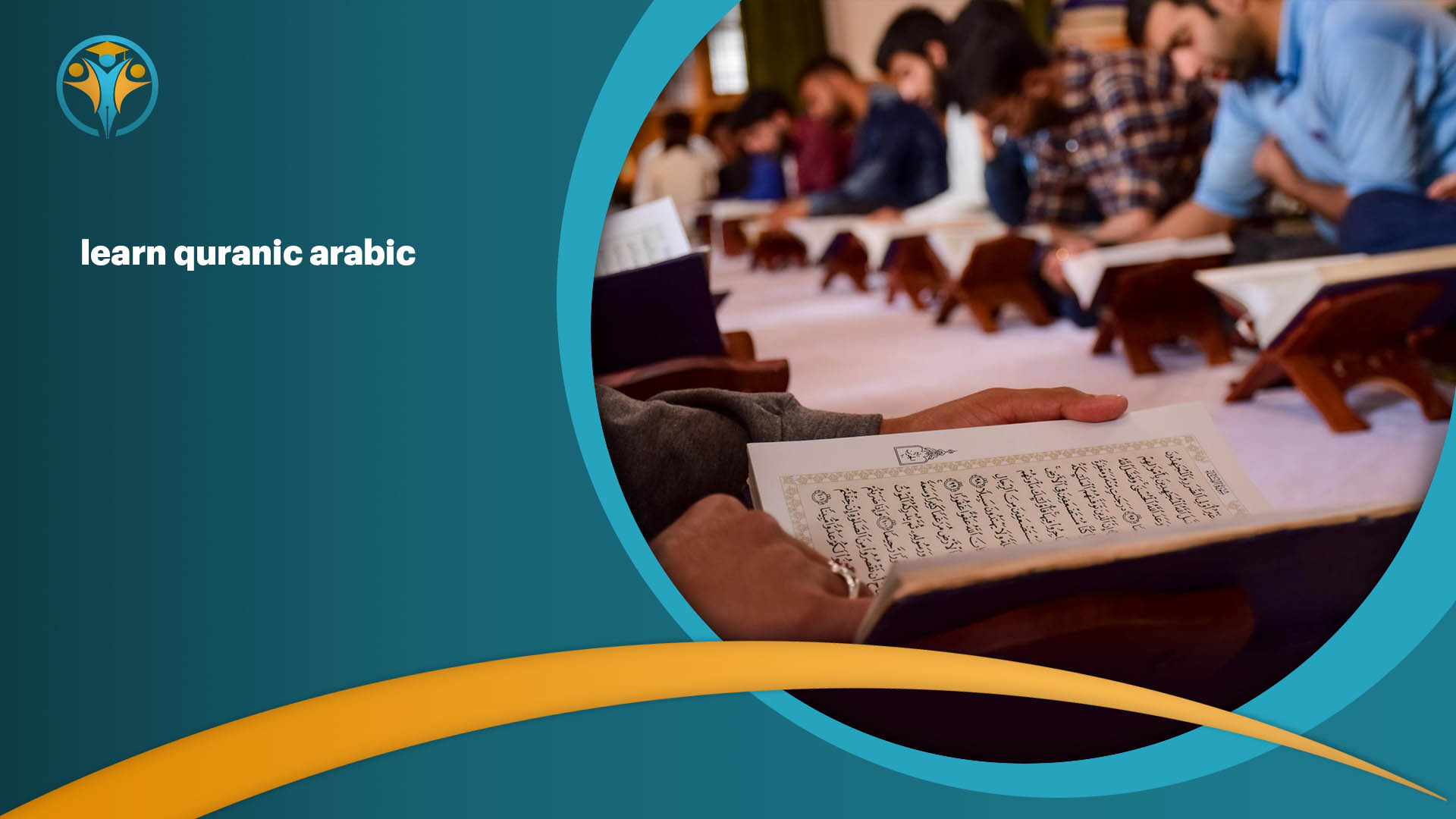
Learn Quranic Arabic for Deeper Understanding 2026
Learn Quranic Arabic with Super Muslim to gain a deeper understanding of the Holy Quran and connect with its true meaning. At Super Muslim, our courses are designed to help students grasp the unique grammar, vocabulary, and style of the Quranic language.
By learning Quranic Arabic, you’ll not only improve your comprehension of the Quran’s original text but also enhance your spiritual journey and appreciation of its divine message. Whether you’re just starting or looking to build on existing knowledge, Super Muslim offers the guidance and support you need.
5 Essential Steps to Learn Quranic Arabic

Have you ever listened to a powerful recitation of the Quran and felt something stir deep within? That emotional pull is often a longing to understand the Quran directly, without relying on translations. If that’s you, you’re not alone—and you’re already on the path.
In this guide, we’ll walk you through five essential steps to help you learn Quranic Arabic. Whether you’re exploring a Quranic Arabic course or simply want to take your first steps toward Quran language learning, these tips will give you a solid foundation.
Step 1: Understand the Different Forms of Arabic
To truly connect with the Quran, it’s important to understand the three key forms of Arabic:
- Spoken Arabic: Varies from country to country—used in everyday conversation.
- Modern Standard Arabic: Found in books, news, and formal writing.
- Classical Arabic: The sacred, preserved language used in the Quran.
Classical Arabic is what you’ll encounter in most Arabic Quran lessons. It’s poetic, precise, and carries layers of meaning that no translation can fully capture. Anyone serious about Arabic for Quran study should start here.
Step 2: Build Core Quranic Vocabulary
Begin by learning commonly used words in the Quran—terms like “Rahma” (mercy), “Kitab” (book), and “Iman” (faith). Recognizing these words will give you confidence as you progress and will make your reading experience far more meaningful.
Many Quranic Arabic courses begin with vocabulary because it’s one of the quickest ways to feel connected to the text. With each word you learn, you get closer to understanding the divine message.
Step 3: Master Arabic Grammar Basics – Raf’a, Nasb, Jarr
Grammar in Arabic unlocks meaning that word-for-word translations can’t convey.
- Raf’a : Subject or doer of the action
- Nasb : The object or the one receiving the action
- Jarr : Indicates relationships like possession or prepositions
Understanding these grammatical statuses is key in any Quran language learning journey. They help you read the Quran as more than just beautiful sounds—they reveal structure, meaning, and clarity.
Step 4: Learn the Sounds – Heavy vs Light Endings
Arabic has a rhythm and sound system that carries meaning. Some words end with a “heavy” sound like -un, while others are “light” and drop that ending.
This small but powerful feature helps learners of tajweed Arabic better appreciate pronunciation and structure. As you listen more closely, especially during recitation, these subtle sounds will become clues that guide your understanding of each verse.
Step 5: Understand Word Flexibility
Arabic is a dynamic language. Words can change form depending on their role in a sentence. This flexibility is one of the reasons it’s such a precise and expressive language.
- Fully Flexible: Words that change with grammatical context
- Partly Flexible: Often non-Arabic names with limited changes
- Non-Flexible: Words like “Musa” or “Isa” that stay the same in any sentence
Any high-quality quranic arabic course or structured Arabic Quran lessons will teach you to identify these patterns. Once you master them, verses start to make sense even without full translation.
Start Your Quran Learning Journey Today with Super Muslim
Deepen your connection with the Holy Quran through Super Muslim — a trusted online platform for Quran learning. Our academy offers qualified and experienced instructors, flexible scheduling, and personalized lessons tailored to your pace and goals.
Whether you’re a beginner learning to read the Quran or looking to perfect your Tajweed and recitation, Super Muslim provides a supportive, interactive, and convenient online environment for learners of all levels.
Join us today and embark on your spiritual journey from the comfort of your home — where Quran learning becomes accessible, effective, and truly rewarding.

The Differences Between Modern Standard Arabic (MSA) and Quranic Arabic
The primary difference between Modern Standard Arabic (MSA) and Quranic Arabic lies in their usage and form. Quranic Arabic, also known as Classical Arabic, is predominantly found in religious texts and classical literature, while MSA is the standardized form used in contemporary writing, media, and formal speech across the Arab world.
Despite these differences, the two forms are closely related, sharing a common grammatical structure and vocabulary with only minor variations. This similarity means that individuals who learn Quranic Arabic often find it easier to pick up MSA, and vice versa.
When deciding which form to study, consider your goals carefully. If your aim is to read, understand, and reflect deeply on the Quran, then focusing on Quranic Arabic is essential. On the other hand, if your goal is to communicate effectively in everyday settings or travel across Arabic-speaking countries, learning MSA will serve you best.
Both forms complement each other, and mastering one will significantly accelerate your proficiency in the other. Fluency in Arabic, whether Quranic or modern, opens doors to numerous academic and professional opportunities in fields such as political science, business, linguistics, and more.
Whether you want to learn Quranic Arabic for spiritual growth or pursue broader language skills, understanding the distinction between these two forms will help you choose the right path and maximize your learning journey.
The Importance of Learning Quranic Arabic for True Comprehension
Understanding the Quran deeply requires more than just reading its translation. Learning Quranic Arabic is essential because it allows you to grasp the true meanings of the Quranic verses, which are often lost or diluted in translation. While translations serve as helpful guides, they cannot fully capture the depth, beauty, and nuances of the original Arabic text.
When you learn Quranic Arabic, you open the door to connecting more intimately with the divine words, enabling reflection and spiritual growth. Here are some key reasons why learning Quranic Arabic is so important:
1. Access to the True Meaning of the Quran
By learning Quranic Arabic, you unlock the essence and profound message embedded within the Quran. The Arabic language is rich and multi-layered—one word can carry several meanings that translations may fail to convey accurately. For example, the phrase فسيكفيكهم الله is complex and difficult to translate fully.
Allah Almighty says in the Quran:
“If mankind and the jinn gathered to produce the like of this Qur’an, they could not produce the like of it, even if they were to each other assistants.” (Surah Al-Isra, 17:88)
2. Strengthening Your Connection with Allah
Learning Quranic Arabic deepens your spiritual connection with Allah. When you understand the meaning of the verses you recite, it enables heartfelt reflection and brings the words alive in your heart.
The Quran serves as a direct communication with Allah. Reciting it with understanding can feel like a personal conversation, healing your soul and reminding you that Allah listens and understands your struggles.
The Quran says:
“Indeed, the believers are those who, when Allah is mentioned, their hearts become fearful, and when His verses are recited to them, it increases them in faith…” (Surah Al-Anfal, 8:2)
3. Appreciating the Miraculous Aspects of the Quran
Learning Quranic Arabic helps you comprehend the wonders described in the Quran, such as the creation of the earth, humanity, and the purpose of life.
Allah says:
“Allah created the heavens and the earth, and all that is between them, in six days.” (Surah Al-A’raf, 7:54)
4. Enhancing Focus and Khushu’ in Prayer
One reason many struggle with concentration during Salah is that they recite verses without understanding their meanings. By learning Quranic Arabic, you gain familiarity with the meanings, allowing for deeper reflection and greater spiritual presence during prayers.
Allah says:
“Successful indeed are the believers, those who humble themselves in their prayers…” (Surah Al-Mu’minun, 23:1-2)
The Prophet Muhammad (peace be upon him) said:
“Pray as if you see Allah, for even if you do not see Him, He sees you.” (Sahih Bukhari, Hadith 50)
5. Understanding the Tafsir More Clearly
When you learn Quranic Arabic, understanding the Tafsir (exegesis) of the Quran becomes easier and more meaningful. You can interpret the verses accurately without relying solely on translations, which may sometimes be misleading or incomplete.
Allah says:
“Do they not reflect upon the Qur’an? If it had been from [any] other than Allah, they would have found within it much contradiction.” (Surah An-Nisa, 4:82)
Learn more: Learning islam
Benefits of Learning Quranic Arabic
Learning Quranic Arabic deepens your understanding of the Quran. When you grasp the meaning of Arabic words, phrases, and expressions, the Quran truly comes alive. You begin to recognize recurring themes, divine wisdom, and powerful messages within each verse, enriching your spiritual experience.
Moreover, mastering Quranic Arabic enhances your Khushu’ (concentration) during Salah. Imagine reciting Surah Al-Fatiha or listening to an Imam and comprehending every word—this transforms your prayer, allowing your heart to be fully present and humble.
For those seeking to learn Fusha Arabic, Super Muslim offers specialized Quranic Arabic programs taught by expert instructors. Join Super Muslim today to benefit from personalized one-on-one lessons, clear and simplified explanations, authentic Arabic pronunciation, and affordable pricing with exclusive discounts.
How Learning Quranic Arabic Enhances Your Recitation

Learning Quranic Arabic significantly improves your Quranic recitation by teaching you the correct pronunciation of letters and their precise articulation points (makharij). This careful attention to pronunciation ensures that the words are recited as revealed.
Allah Almighty commands us in the Quran:
“And recite the Qur’an with measured recitation.” (Surah Al-Muzzammil, 73:4)
The Prophet Muhammad (peace and blessings be upon him) also encouraged beautifying the Quran through proper recitation:
“Beautify the Quran with your voices.” (Sunan Abi Dawood, Hadith 1468)
Moreover, striving to learn and memorize the Quran is highly rewarded. The Prophet (peace be upon him) said:
“The one who recites the Quran and learns it by heart will be with the noble scribes.” (Sahih Bukhari, Hadith 4937)
By choosing to learn Quranic Arabic, you not only enhance your ability to recite beautifully but also deepen your understanding and connection to the Quran’s divine message.
Frequently Asked Questions About Learn Quranic Arabic
Learning Quranic Arabic can seem challenging at first, especially for beginners, but with the right guidance and consistent effort, it becomes an incredibly rewarding journey. Here are some of the most commonly asked questions about how to learn Quranic Arabic:
Do I need to know Modern Standard Arabic before learning Quranic Arabic?
No, you can start learning Quranic Arabic without prior knowledge. Many courses, like those at Super Muslim, are designed for complete beginners.
How is Quranic Arabic different from regular Arabic?
Quranic Arabic includes classical vocabulary, grammar, and expressions found specifically in the Quran, which may differ slightly from modern spoken Arabic.
How long does it take to learn Quranic Arabic?
The time varies depending on your background and commitment, but with consistent practice, learners often begin understanding basic Quranic texts within a few months.
In conclusion, learn Quranic Arabic to truly understand the depth and beauty of the Quran’s message in its original form. Mastering this sacred language allows you to connect more deeply with every verse, enhancing both your spiritual growth and your appreciation of the Quran.
With the right guidance and dedication, anyone can begin this meaningful journey. Whether you’re a beginner or looking to strengthen your knowledge, platforms like Super Muslim offer the support and resources needed to succeed.
Read also: best online quran classes



